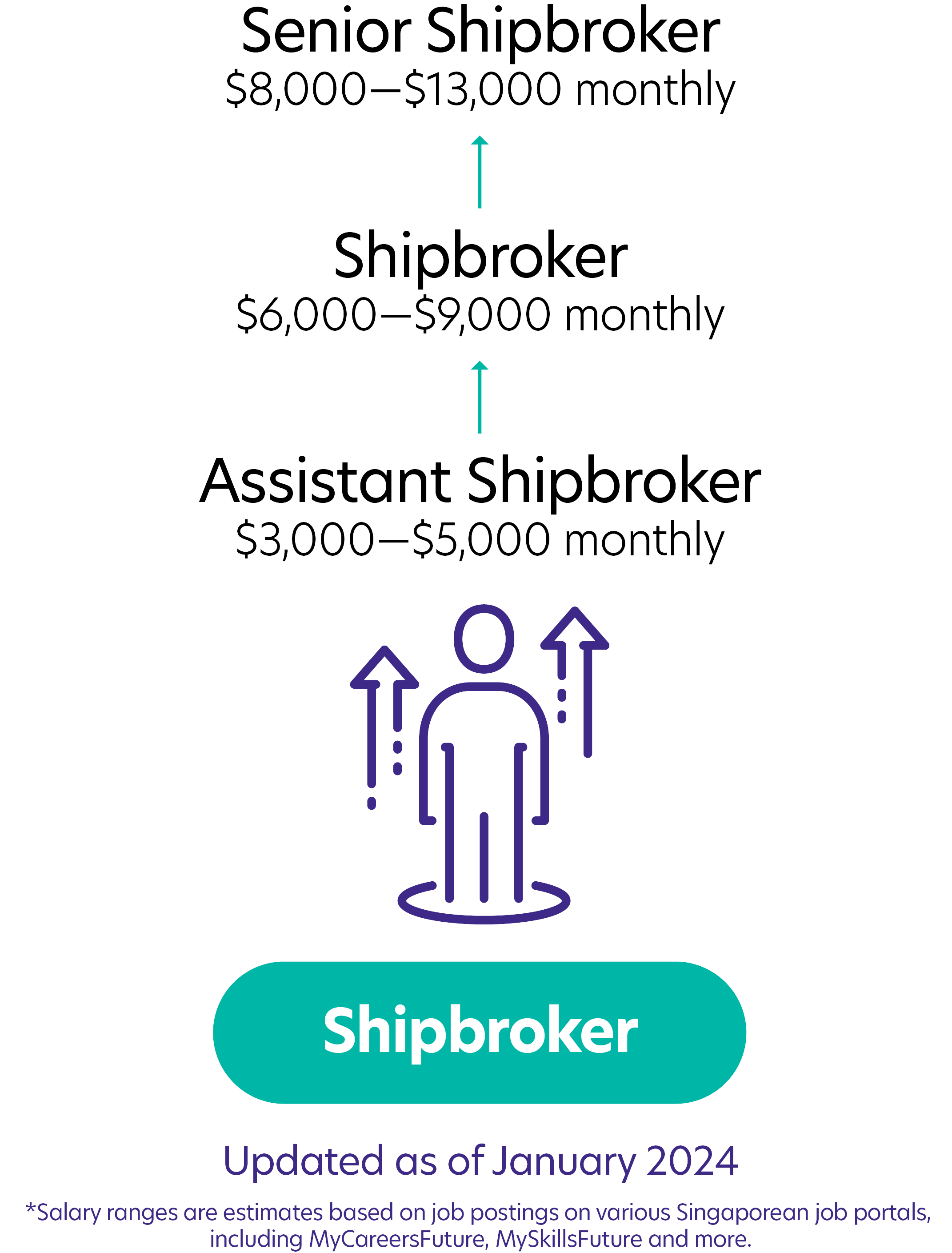
Shipbroker jobs in Singapore involve acting as the mediators between parties involved in the movement of goods or the sale and purchase of ships.
- Grow and manage chartering/sales and purchase brokerage business.
- Determine risks and feasibility of new business opportunities.
- Service client accounts.
- Lead improvements to enhance efficiency.
- Manage resource planning.
Note
Nature of Work
You can be a Chartering Broker who mediates charterers and cargo owners or as a Sales and Purchase Broker who facilitates the buying and selling!Key Advice
You must stay informed about market trends and build a strong network to mediate between parties in chartering or sales and purchase effectively.-
Entry RequirementsEntry Requirements
-
A diploma or bachelor's degree in Shipping, Maritime Studies, Business, Economics and Logistics is preferred.
-
Having good networking skills is a bonus! You will need to use these skills when seeking out prospective clients to build a global network of contacts.
-
-
Possible PathwayPossible Pathway

Budgeting
Skill in managing budgets is crucial for effective financial planning in brokerage deals.Business Data Analysis
Proficiency in analysing market data to inform decisions and strategies in shipbroking.Cash Flow Reporting
Managing and reporting cash flow is essential for maintaining financial stability.Chartering/Ship Financing
Knowledge of chartering processes & ship financing options is vital for negotiating contracts.Market Research
Conduct market research to stay informed of industry trends and identify opportunities in the shipping market.Business Negotiation Skills
Conduct market research to stay informed of industry trends and identify opportunities in the shipping market.Communication
Clear and effective communication skills are vital for liaising with clients and shipowners.Interpersonal Skills
Ability to build strong professional relationships and a network of contacts in the shipping industry.Problem-Solving
Skilled in identifying and resolving issues that arise during brokerage operations.Service Orientation
Commitment to providing high-quality service, ensuring client satisfaction in all brokerage activities.
Related Job Roles
Explore Other Programmes
Browse AllYou have bookmarked your first item!
Find it in My Discoveries with insights on your interests!












